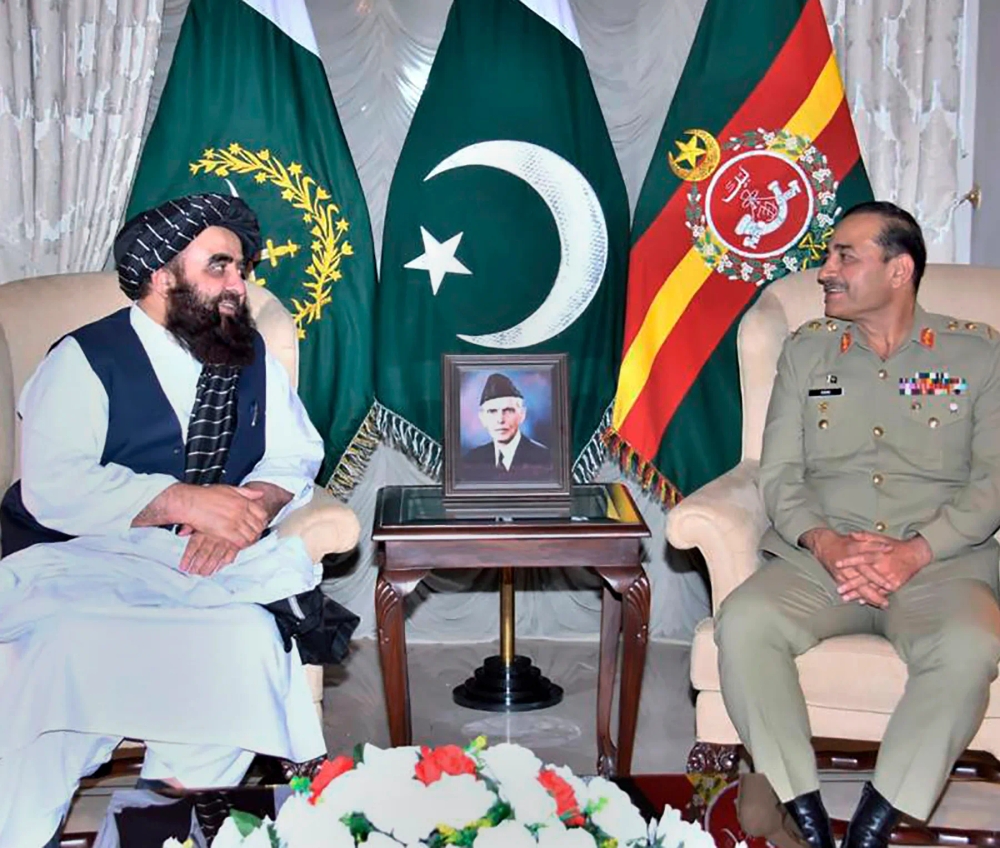Published
- 3 min read
Stability Through Diplomacy: A New Approach to Afghanistan-Pakistan Relations

The Need for a Paradigm Shift in Addressing Cross-Border Tensions
The Afghanistan-Pakistan border region has long been a focal point of geopolitical instability. While military actions are often seen as an immediate response to cross-border threats, the long-term consequences of such measures frequently perpetuate a cycle of violence. A more sustainable approach rooted in diplomacy, mutual understanding, and regional collaboration offers a viable path forward.
Understanding the Roots of Conflict
The porous borders between Afghanistan and Pakistan have historically been exploited by militant groups. These challenges are compounded by deep-seated mistrust, historical grievances, and diverging political agendas. However, reliance on military strikes risks alienating communities on both sides, undermining trust, and potentially fueling further insurgency.
The region’s stability depends not only on neutralizing immediate threats but also on addressing underlying socioeconomic and political issues. Poverty, lack of education, and inadequate governance create fertile ground for extremist ideologies to thrive.
Diplomatic Engagement as a Cornerstone
A strategy focused on high-level diplomatic engagement is crucial. Both Afghanistan and Pakistan need to establish a bilateral framework for cooperation that prioritizes:
- Joint Border Management: Enhanced border surveillance and intelligence-sharing mechanisms to prevent militant infiltration.
- Economic Cooperation: Initiatives to stimulate trade and cross-border investments, providing alternative livelihoods to vulnerable populations.
- Cultural Exchange Programs: Building trust through people-to-people connections, fostering mutual understanding, and dispelling misconceptions.
Regional stakeholders, including neighboring Iran, China, and Central Asian nations, should be involved in these discussions to ensure broader stability in South Asia.
Strengthening International Mediation
The international community, particularly organizations like the United Nations and the Organization of Islamic Cooperation, must take a more proactive role in mediating between Afghanistan and Pakistan. Confidence-building measures facilitated by impartial mediators can help bridge the trust deficit.
An international task force comprising diplomats, counterterrorism experts, and development agencies could be established to:
- Monitor the implementation of agreements.
- Assist in training and capacity-building for Afghan and Pakistani security forces.
- Provide development aid focused on infrastructure, education, and healthcare.
A Comprehensive Counterterrorism Strategy
While addressing terrorism is non-negotiable, a militarized response alone cannot resolve the issue. A comprehensive counterterrorism strategy should combine security measures with initiatives aimed at deradicalization and community engagement.
Key Components of the Strategy:
- Intelligence Collaboration: Real-time data sharing on militant activities to preempt attacks.
- Rehabilitation Programs: Offering former militants an opportunity to reintegrate into society through vocational training and psychological support.
- Empowering Local Governance: Strengthening community-led governance structures to resist extremist influences.
The Role of Regional Actors
Both Afghanistan and Pakistan must acknowledge that their shared security challenges cannot be solved in isolation. A collaborative approach, where both nations perceive each other as partners rather than adversaries, is essential.
China’s Role:
China, as a major investor in the region through initiatives like the China-Pakistan Economic Corridor (CPEC), has a vested interest in ensuring stability. Its diplomatic influence can be leveraged to encourage cooperation.
The Central Asian Nexus:
Landlocked Central Asian countries stand to benefit from a stable Afghanistan-Pakistan corridor. Enhanced connectivity and trade opportunities could transform the region into an economic hub.
Rebuilding Trust: A Long-Term Goal
The most significant obstacle to peace remains the lack of trust between Kabul and Islamabad. Years of accusations and counteraccusations have eroded goodwill, making it imperative to rebuild confidence through transparency and consistent engagement.
Afghanistan’s interim government, grappling with its internal challenges, must take steps to address Pakistan’s concerns regarding militant sanctuaries. Simultaneously, Pakistan should acknowledge Afghanistan’s sovereignty and engage constructively without resorting to unilateral measures.
Conclusion: The Path Forward
Military strikes may offer short-term gains, but sustainable peace requires a commitment to diplomacy, collaboration, and mutual respect. Afghanistan and Pakistan, with the support of regional and global actors, must prioritize long-term stability over immediate tactical victories. By investing in dialogue and development, the two nations can transform their shared border from a site of conflict into a gateway for peace and prosperity.
